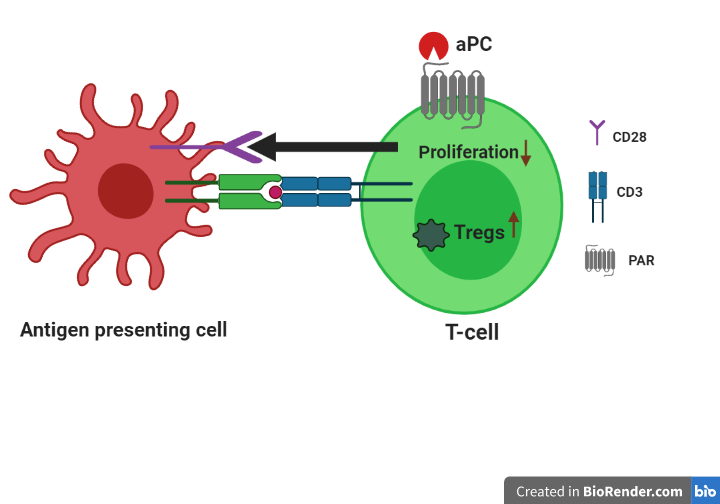
The coagulation system is an integral part of the inflammatory response. One of the central anticoagulant protease is activated protein C (aPC) which has a recognized role in controlling innate immunity through both its anticoagulant and signaling properties, the functions of aPC and its receptors in adaptive immune system such as T-cells remain largely unknown. In my current research I aim to understand the molecular mechanism by which coagulation protease such as aPC regulates the immune-modulatory function in T-cells in the context to inflammatory diseases like Graft vs Host disease (GvHD). The anti-inflammatory effects of coagulation proteases are mainly mediated through G-protein coupled receptors, most important of them are protease activated receptors (PARs). So far the interaction and signaling of these receptors is not well defined in T-cells. Therefore, we exploit CRISPR, site directed mutagenesis, proximity ligation assay, flow cytometry approaches to understand the intercellular mechanisms of signal transduction by these receptors.
We also speculate that these coagulation protease alters the adhesion and migration properties including the metabolic re-programming of T-cells resulting in a differential phenotype. To dissect this, we will be using state of the art techniques including two-photon microscopy, live cell metabolic profiling using sea-horse, proteomics, metabolomics, and single cell sequencing.
Back to research interests
